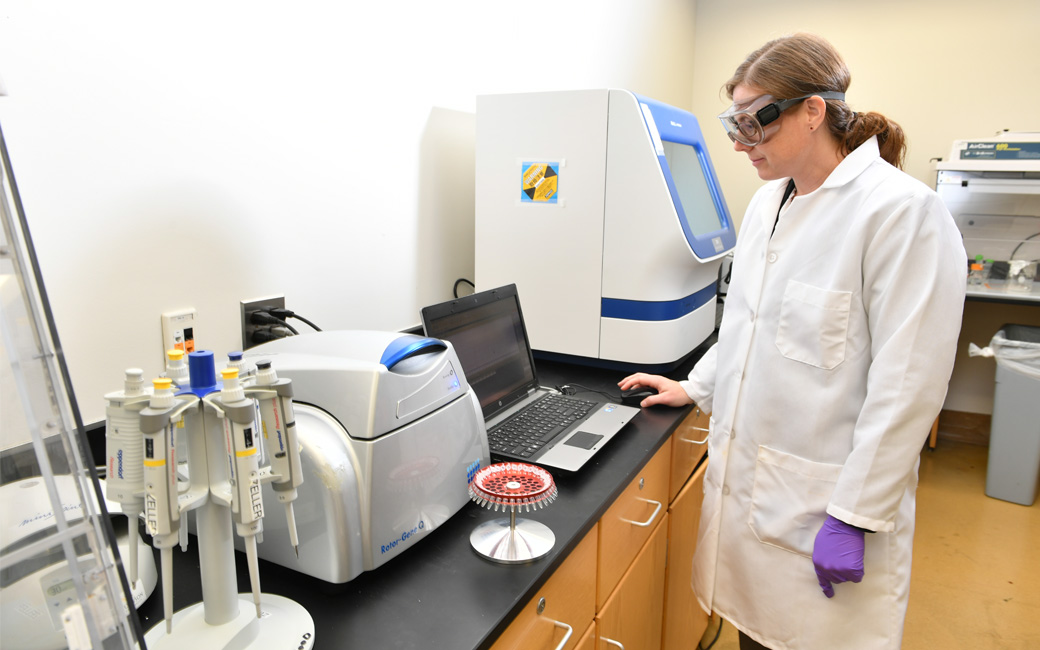Solving forensic problems with science
Professor Kelly Elkins and her research team have created a fast and low-cost method to develop assays that probe DNA differences among species.

In her lab on the Towson University campus, Kelly Elkins is waging her own battle against potential weapons of biological warfare, including bioterror agents identified by the U.S. Centers for Disease Control.
Elkins and her research team have created a fast and low-cost method to develop assays that probe DNA differences among species. The multiplex molecular assay could have applications in biodefense and foodborne pathogen testing as it detects and differentiates various types of bacteria, including Salmonella and E. coli.
“ If you are looking for a way to engage your love of science and contribute to the public good, this is the perfect field. ”
Her research is conducted as part of Towson University’s forensic chemistry program, one of only six such programs nationally that offers both bachelor’s and master’s degrees and is accredited by the Forensic Science Education Programs Accreditation Commission. “This program has allowed me to merge my interests in biology and chemistry toward solving forensic problems,” says Elkins, who compares forensic chemistry to detective work. “If you are looking for a way to engage your love of science and contribute to the public good, this is the perfect field.”
At Towson University, the classroom experience is critical, but Elkins says the potential to participate in groundbreaking research is a big selling point for students. “TU values the applied science aspect of this program, and we realize it is important to get students into the lab to develop their own research interests with faculty mentors.”
In a project funded by the Maryland Technology Development Corporation, Elkins is teaming up with computer science faculty to develop mobile applications to interpret and systematize colorimetric drug testing, which are being pilot tested by the Maryland State Police and Baltimore City Police Department. “It is exciting to see how different departments work together to solve problems,” says Elkins. “We are contributing to a very active and vibrant research community, and our graduates make connections easily with employers, who return to us each year for more Towson University graduates.”